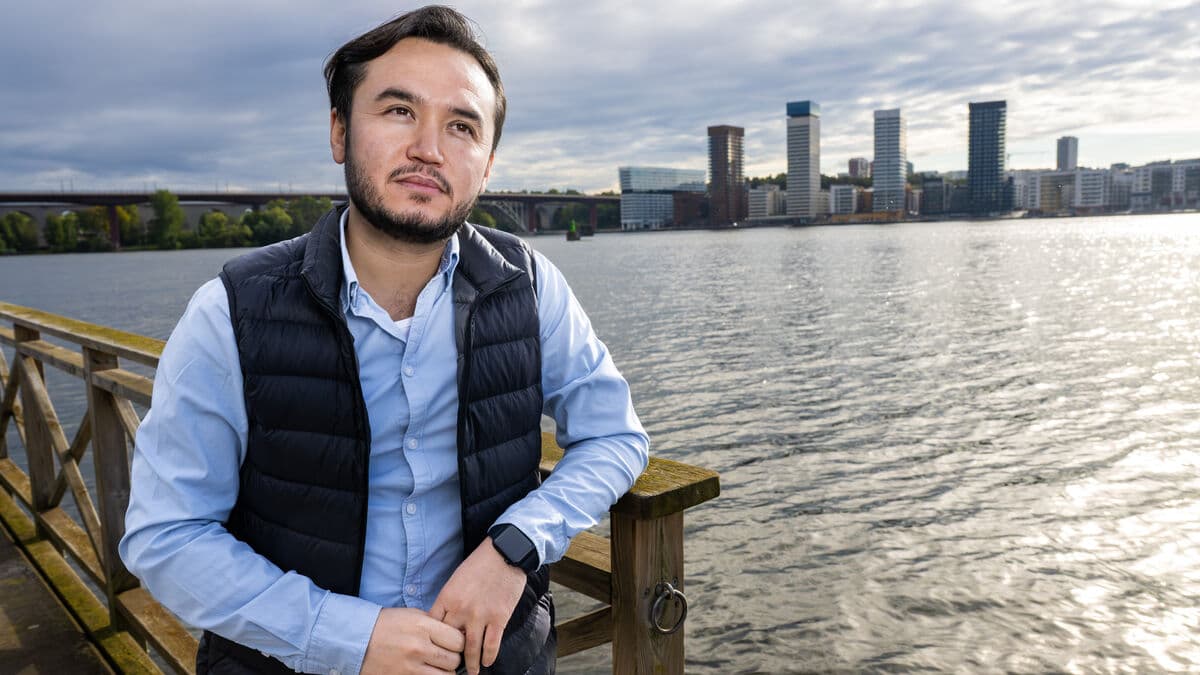In November 2015, the so-called refugee crisis reaches its peak. By then, around a million people from Syria, Iraq, Afghanistan, Somalia and Sudan have come to Europe in the hope of a better life.
One of them is Farzan Mozaffari, 16 years old, who takes his first steps on Swedish soil when he gets off the Öresund train at Malmö Central Station.
It was a feeling of freedom, of no longer having to worry, he tells TT ten years later.
He belongs to the persecuted Hazara minority in Afghanistan and was forced to leave his family in his homeland. He made his way to Malmö on his own via Pakistan, Iran, Turkey, Greece and beyond, largely on foot.
Along the way, he has encountered shooting border police, been exploited by smugglers, and seen the ocean for the first time in his life – in the middle of the night with 50 other migrants in a rubber boat designed for ten.
"The trip was the hardest thing I've ever been through. I didn't understand it at the time. But now that I reflect, I understand how dangerous it was," he says.
Heard about Sweden
He initially has no planned destination, but along the way he hears that Sweden is a good country, with a generous asylum policy. He doesn't know much else about the country he hopes will become his new homeland.
That first feeling of freedom disappears. Malmö is dark and cold, the Swedes also feel cold. He experiences the Migration Board's investigation as a long police interrogation, where they both distrust him and are poorly informed about what it is like in Afghanistan.
They didn't know what they were talking about. They may have had a lot of work, but it would also be wrong to make decisions on those grounds. The whole process didn't feel legally secure, he says.
After a bit of wandering, he ends up in the countryside outside Vallentuna. Everything is even darker and quieter there – but now he gets to start school and encounters a different side of Sweden.
I wanted to study and learn the language and I could compare it to school in my home country. Here it looks completely different, I felt like I was in the right place. There was a feeling of hope.
The others were rejected.
He has to start from scratch and go through the entire elementary school from the beginning. He completes it in two years while also learning Swedish. Just as he has learned the language and begun to integrate into Swedish society, the asylum process is complete. He is terrified of being rejected.
Farzan is not rejected, he is granted a residence permit. But he finds it difficult to be happy about the news.
Most of the others got rejected. Those were the people I had the most contact with, at school and so on. Where I lived, there were five of us and the other four got rejected. You had built a relationship with them, everyone had become friends.
Farzan Mozaffari was one of 35,000 unaccompanied children who sought asylum in Sweden in 2015. According to Statistics Sweden, just over 20,000 of them are still alive today. Of these, eight out of ten are employed.
Farzan has been working for a few years at the organization Right by me, which, among other things, works to help young people with a foreign background enter the job market. But he is currently on leave to study at university.
His studies take up most of his focus, but he also manages to meet up with friends and work out sometimes. His family remains in Afghanistan. He doesn't want to talk much about them, but says it has become even more difficult to stay in touch since the Taliban cut off access to the internet.
He likes life here, but at the same time he doesn't really recognize himself. The country that welcomed him has changed in ten years, he thinks. Today's society is different, with a completely different refugee policy – much of it as a result of the refugee wave he was a part of.
“Anxious and stressed”
Recently, government investigators proposed a new law, with the possibility of revoking permanent residence permits. This caused Farzan's nagging worries from the asylum process to flare up again.
It's a way to scare people, to panic them and to take away their security, he says.
But the worry is not just about staying or not, but that you feel affected by those questions. Being in this country and feeling worried and stressed all the time, just because of how you look and what your background is.
It's not about complaining about Sweden, he emphasizes.
But I have a lot to say about the things that are happening in Sweden, especially about the issues that concern me and the group I belong to. I see it as my right to be able to express myself as one of those who live in this society. I contribute to it and want the well-being of Sweden.






